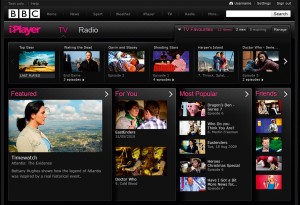 BBC Research & Development is developing a system that would show users of the BBC iPlayer how efficiently the online delivery platform is being handled by their ISP.
BBC Research & Development is developing a system that would show users of the BBC iPlayer how efficiently the online delivery platform is being handled by their ISP.
In a speech to the FT World Telecoms Conference 2010, BBC Future Media director Erik Huggers said a simple red, amber, green indicator would show the level of service through which iPlayer content was being delivered.
In addition, Huggers proposed a ‘kitemark’ that would denote levels of different broadband package capability in simple, easy to understand language. He added the BBC was ready to engage with ISPs to help reduce network congestion by introducing adaptive bitrate streaming technologies that use the HTTP protocol and can be cached on the ISP networks.
The BBC has regularly encouraged the use of multicast delivery, a solution that would go some way toward alleviating the criticism levelled at the iPlayer’s use of substantial portions of bandwidth.
Huggers called for continued investment in next generation networks to cope with the demands of online video. “An open and neutral internet is crucial to the growth of our digital economy,” he said.
Such a proposition runs counter to comments made by culture minister Ed Vaizey, who has backed the possibility of allowing ISPs to charge heavy bandwidth users such as the BBC for using their pipes. This may well depend on the ISP, the BBC’s partners in YouView are already taking action to ensure the quality of the content available over their networks, TalkTalk recently announcing plans for a CDN to cover the delivery of the hybrid television platform.
Vaizey appears to be arguing that ISPs should be allowed to go further than the moderate proposals for traffic management on the European table. He said that ISPs had to be free to explore new revenue streams, providing it was clear to the customer exactly what they were receiving.
There are no proposals for the coalition government to introduce new laws over and above what will come out of Brussels, Vaizey preferring a light regulatory regime.